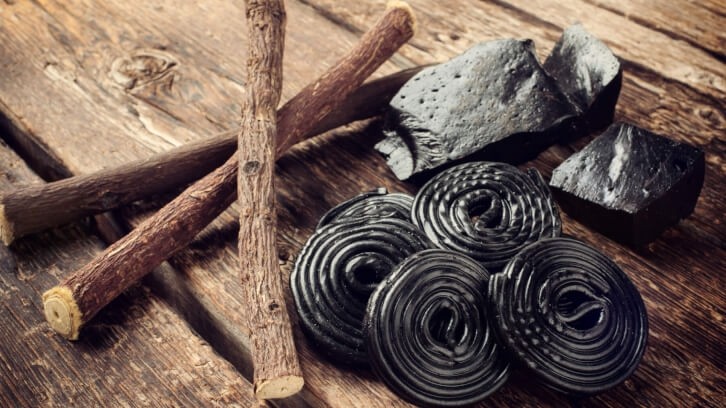Licorice limit questioned following low dose blood pressure increases

The research, published in The American Journal of Clinical Nutrition and funded by Linköping University, noted the significant suppression of renin and aldosterone as well as an impact on blood pressure following intakes of glycyrrhizinic acid (GA) contained in licorice.
“We found licorice to be more potent than previously known, with significant increases in BP, after a daily intake of only 100 mg of GA,” the researchers wrote. “Thus, the safe limit of intake of this substance might need to be reconsidered."
“These effects have not previously been demonstrated for such moderate amounts of daily intake of licorice, which is within the range that has been regarded as ‘probably safe’ for most individuals,” they added.
Luca Bucchini, managing director at Hylobates Consulting, explained that previous safety investigations into licorice have resulted in some EU Member States, such as France and Belgium, choosing to set a limit of 100 mg for food supplements.
“Indeed, the EU assessed glycyrrhizinic acid from licorice in 2003, due to concerns going back to at least the 1990s, and found that below 100 mg there would be limited concerns,” he told NutraIngredients.
“In this sense, the concern is not new. However, the 100 mg limit was based on modelling of data, and the new study may suggest lower limits for maximum daily dose and/or warnings. Nevertheless, given the rare use of licorice in food supplements, the overall health impact is likely to be low, though it is important for hypertensive consumers to limit consumption of licorice from any source."
Laws on licorice
Licorice is extracted from the Glycyrrhiza species and has been historically used as a herbal medicine and flavouring agent. Yet, despite previously identified health benefits, including anti-inflammatory activities and respiratory health support, consumption of the GA compound has been associated with a raised blood pressure (BP). The mechanisms underlying this effect are yet to be understood.
Safe intakes recommended by the European Union and the World Health Organization (WHO) are specified as up to 100 mg GA a day. However, the Swedish Food Agency has observed that the top 5% of consumers have daily intakes above this limit.
Because randomised controlled trials into the effects of whole sweet licorice on BP are lacking and conclusions regarding the safety of consuming 100 mg of GA for BP levels are still pending, the present study sought to assess the effects of daily sweet licorice intakes on BP readings and hormonal levels.
Study details
The researchers recruited 28 healthy participants with an average age of 24 years. The study used a two-treatment, two-period, two-sequence (2x2) randomized crossover design, with participants either starting with a licorice or a control product. The first block consisted of a 1-week run-in, followed by the 2-week licorice intervention, a 2-week washout, a 2-week control period and a further 2-week washout period. The second block reversed the sequence of 2-week periods.
Intervention periods involved the administration of 14.5 sweet licorice pastilles daily (produced by Nature Med S.r.l., Cosenza, Italy), equivalent to 3.3 g of licorice and 100 mg of GA. At-home blood pressure was measured daily and blood samples taken after each two-week period.
The researchers observed significant increases in the systolic home BP during the licorice intervention period when compared to measurements in the control period. BP readings were found to show increases from day five, and continued numerical increases were noted until day 14.
In addition, renin and aldosterone were found to be suppressed during the licorice intervention. In participants displaying the most marked reductions of renin and aldosterone, N-terminal prohormone of brain natriuretic peptide (NT-ProBNP) was also found to be increased during the intervention when compared to the control.
“The results indicate that licorice is a more potent substance than previously known and that levels advised as 'probably safe' by the WHO and the European Union is not at all innoxious when tested in a randomized controlled setting with home BP recordings,” the researchers concluded.
“It is likely that other sensitive subsets, such as people with hypertension or renal insufficiency, would have even stronger effects of GA, hence we urge for further studies on this topic. Meanwhile, we suggest a more stringent warning labelling on GA containing confectionery,” they added.
Source: The American Journal of Clinical Nutrition
doi: https://doi.org/10.1016/j.ajcnut.2024.01.011
"A low dose of daily licorice intake affects renin, aldosterone, and home blood pressure in a randomized crossover trial"
Authors: Peder Af Geijerstam











